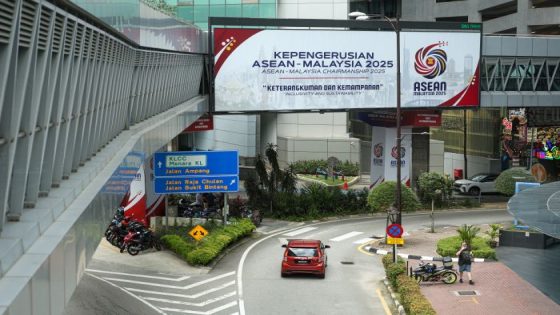On January 21, 2025, Malaysia faces three major challenges as it prepares to chair ASEAN. How will the nation navigate these hurdles while ensuring regional stability? With the spotlight on Malaysia, the nation must rise to the occasion and lead effectively.
- Malaysia faces three main challenges as ASEAN Chair 2025.
- Building ASEAN resilience against new threats.
- Langkawi ready for major events.
- Malaysia's role in maintaining ASEAN stability.
- ASEAN Foreign Ministers' Meeting showcases Langkawi's excellence.
Malaysia’s Role as ASEAN Chair: Key Challenges Ahead
What does it mean for Malaysia to chair ASEAN in 2025? This pivotal role comes with responsibilities, including addressing economic uncertainties and security issues. Malaysia must lead discussions on enhancing cooperation among member states to tackle these challenges effectively.
Strengthening ASEAN: Building Resilience Against New Threats
Malaysia’s leadership in ASEAN is crucial for building resilience against emerging threats. The nation must foster collaboration among member states to address issues such as cybersecurity, climate change, and economic instability. By doing so, Malaysia can help ensure a stable and prosperous region.
Key Areas of Focus for Malaysia in ASEAN Leadership
As Malaysia takes on its role, several key areas will demand attention:
- Economic Cooperation: Promoting trade agreements and economic partnerships.
- Security Collaboration: Enhancing joint efforts to combat terrorism and cyber threats.
- Environmental Challenges: Addressing climate change impacts and sustainable development.
- Cultural Exchange: Fostering greater understanding among ASEAN nations.
Engaging the U.S. Through ASEAN Initiatives
Malaysia’s leadership in ASEAN presents an opportunity to engage the U.S. in meaningful dialogue. By addressing shared concerns such as trade, security, and climate change, Malaysia can strengthen ties with the U.S. and enhance regional cooperation.
In conclusion, as Malaysia prepares for its ASEAN chairmanship in 2025, the nation must focus on overcoming significant challenges while promoting stability and cooperation. The outcome of this leadership will shape the future of ASEAN and its relations with global partners.
































